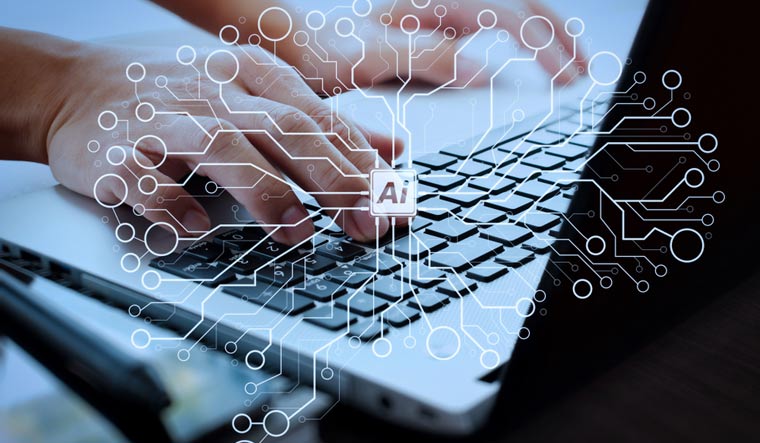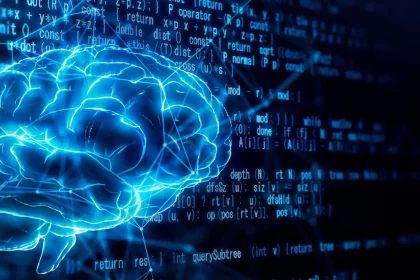Artificial intelligence (AI) is becoming a ubiquitous presence in our daily lives, affecting a wide range of sectors, reshaping economies, and changing how we use technology. The appropriate books can be priceless tools for anyone interested in learning more about artificial intelligence, regardless of experience level. These ten books on AI stand out as crucial resources for understanding the fundamentals and keeping up with the most recent advancements in 2024.
Melanie Mitchell’s book “Artificial Intelligence: A Guide for Thinking Humans”:
The book by Melanie Mitchell offers a clear and informative look into the field of artificial intelligence. Rather of getting into technical details, Mitchell attempts to demystify AI for a general audience. For those who are unfamiliar with the area, her exploration of the history, difficulties, and societal consequences of AI makes it a great place to start.
Max Tegmark’s book “Life 3.0: Being Human in the Age of Artificial Intelligence”:
Max Tegmark addresses the important concerns about AI’s effects on people in “Life 3.0.” Tegmark invites readers to reflect on how AI may affect the course of humankind, covering everything from ethical issues to possible futures. The book provides a stimulating overview of the philosophical issues surrounding artificial intelligence.
Alan K. Mackworth and David L. Poole, “Artificial Intelligence: Foundations of Computational Agents”:
The thorough textbook “Artificial Intelligence: Foundations of Computational Agents” is a good choice for anyone wishing to learn more about the technical foundations of AI. Because it organizes and makes sense of basic concepts, this book by David L. Poole and Alan K. Mackworth is suitable for both beginners and AI students.
Kai-Fu Lee’s book “AI Superpowers: China, Silicon Valley, and the New World Order”:
Leading authority on artificial intelligence, Kai-Fu Lee, provides a distinctive viewpoint on the state of AI worldwide in “AI Superpowers.” Lee examines the economic and geopolitical ramifications of artificial intelligence, concentrating on the rivalry between China and Silicon Valley. The book offers insightful information about the dynamics propelling AI innovation and its possible effects on global society.
Aurélien Géron’s book “Hands-On Machine Learning with Scikit-Learn, Keras, and TensorFlow”:
Aurélien Géron’s book is a great option for anyone who can’t wait to get their hands dirty with real-world applications. Through the creation and application of machine learning models, “Hands-On Machine Learning” guides readers through the use of popular tools such as Keras, Scikit-Learn, and TensorFlow. Géron equips readers with the practical skills necessary to implement AI ideas in practical situations.
Nils J. Nilsson’s “Artificial Intelligence: A New Synthesis”:
J. Nilsson’s book “Artificial Intelligence: A New Synthesis” offers a comprehensive introduction to the field, covering everything from perception and learning to problem-solving. The book is appropriate for readers who want to gain a comprehensive understanding of AI topics since it finds a balance between theory and practice.
Kevin Warwick’s book “Artificial Intelligence: The Basics”:
Kevin Warwick’s book “Artificial Intelligence: The Basics” provides a clear and educational introduction to the core ideas of AI. Warwick examines the applications, background, and moral implications of artificial intelligence, which makes this book a useful starting place for readers who wish to swiftly pick up the fundamentals.
Andrew Ng’s “Machine Learning Yearning”: A well-known expert in the field of machine learning, provides engineers and practitioners with “Machine Learning Yearning,” which serves as a useful manual. With an emphasis on the subtleties of implementing machine learning in practical applications, this book offers insightful information about the iterative process involved in developing and implementing effective machine learning systems.
Patrick Winston’s book “Artificial Intelligence: Foundations of Computational Agents”:
The venerable textbook “Artificial Intelligence” by Patrick Winston discusses the ideas and methods involved in creating intelligent agents. The book provides a thorough resource for anyone interested in the theoretical aspects of artificial intelligence, with an emphasis on reasoning and problem-solving techniques.
Stuart Russell’s book “Human Compatible: Artificial Intelligence and the Problem of Control”:
Stuart Russell tackles the important topic of integrating AI systems with human values in “Human Compatible.” Russell looks at the challenges of creating AI that is beneficial and in line with human goals, emphasizing how important it is to align AI goals with human values in order to ensure a safe and prosperous future.



